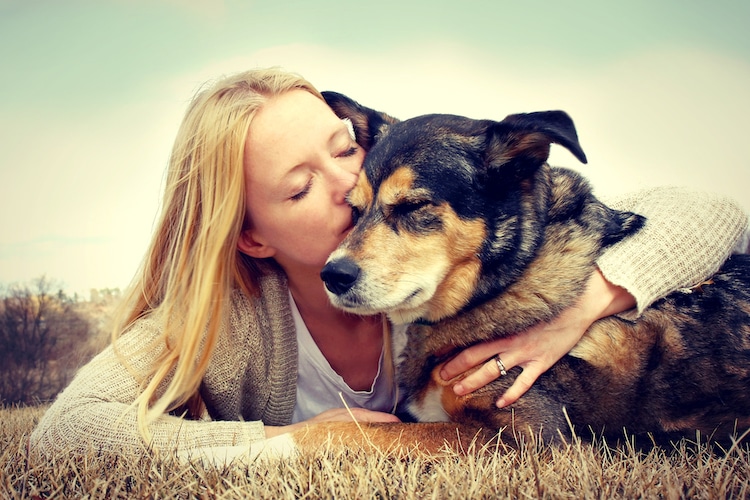
Photo: Christin_Lola/Depositphotos
For many people, their pets are their world. The love they feel for their dog, cat, rabbit, lizard—any domesticated living creature they care for—is boundless. That’s precisely why losing a pet is like losing a member of the family. However, this type of bereavement is rarely taken as seriously in professional and social settings. Though many people can sympathize with someone grieving the loss of another human, society generally lacks the same level of empathy for someone whose pet has passed away. In an effort to dissolve the stigma around a person grieving the death of a pet, a new review strongly encourages counselors to take different approaches with clients who are mourning their non-human companion.
The review—titled Overcoming the social stigma of losing a pet: Considerations for counseling professionals and co-authored by Dr. Michelle Kay Crossley (an assistant professor at Rhode Island College) and Colleen Rolland (president and pet loss grief specialist for Association for Pet Loss and Bereavement)—explores the importance of recognizing grief in patients and offering them a safe space to deal with it. The report explains: “While empathy may come more naturally when discussing human loss, there are other types of loss that are not acknowledged or given a similar amount of attention by society. Grief due to these socially unendorsed losses is referred to as disenfranchised grief and can include death by suicide, a lost pregnancy/miscarriage, and death from AIDS, in addition to the death of a pet.”
Dr. Crossley and Rolland explain how harmful the disregard of a pet owner’s grief can be. As the paper states, “When relationships are not valued by society, individuals are more likely to experience disenfranchised grief after a loss that cannot be resolved and may become complicated grief.” In an effort to guide mental health consultants, the co-authors write: “It is important for counselors to recognize their own biases regarding the types of losses that are worth an empathetic response as individuals are better able to heal from a loss through social support and recognition.” They add, “A counselor can cause more pain to the client by not understanding or honoring the depth of the bond shared between the client and the pet. The distress that one can experience secondary to the loss of a companion animal can be intense, and it is critical to serving these clients in the same manner that we would have had they been grieving the loss of a human.”

Photo: vitalytitov/Depositphotos
The article also highlights the impact the COVID-19 pandemic had on human-animal relationships. During this time, there was an increase in the adoption rates of cats and dogs. Additionally, since many individuals transitioned to working from home, people also relied more on their animal companions for comfort. As a result, many more people have bonded with their pets in the last few years. But, even in years prior to this uptick in animal adoption, the American Veterinary Medical Association recorded in 2018 that “57% of households owned a pet with 66% owning more than one companion animal. Of the individuals surveyed, approximately 80% consider their pets to be family members, 17% consider them to be a companion and only 3% consider them property.”
Ultimately, the article strongly urges counselors to consider pet bereavement with equal empathy to human losses, which are given greater acknowledgment by society, and provide safe spaces for clients to work through their grief. “Giving a voice to individuals grieving a disenfranchised loss is one way in which counselors can help clients through pet loss,” the co-authors advise. “It is also important to integrate pet loss work into counseling interventions and coping strategies that are already being used in the therapeutic space.”
A new review recommends that counselors take the loss of a pet more seriously for their clients.

Photo: anjajuli/Depositphotos
h/t: [IFL Science]
Related Articles:
Study Finds That Petting Dogs May Give Us the Same Brain Benefits as Socializing With Humans
Study Finds That Dogs Can Detect When We’re Stressed Out
Study Shows That Dogs Shed Tears of Joy When They Reunite With Their Humans
